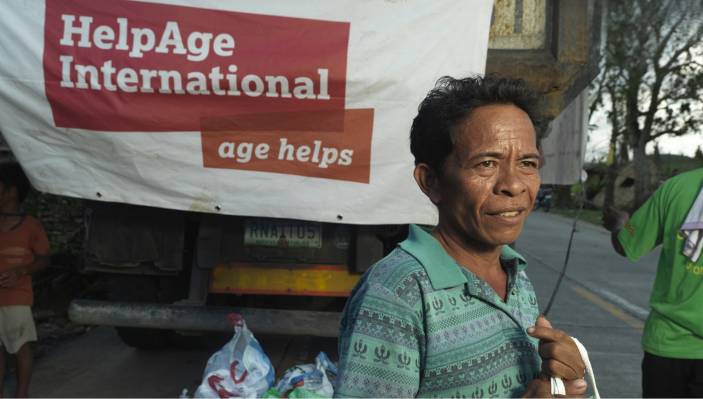
The World Humanitarian Summit consultation process was a herculean effort. With 23,000 people contributing their views on how emergency responses can be reformed, including national NGOs and those affected by disasters, the conclusions were designed to legitimately reflect the real issues of concern.
For those representing the needs of marginalised and vulnerable groups such as older people, young people, children and people with disabilities, the outcome of the consultation was positive.
The commitments to dignity, empowerment, and delivery of assistance reaching everyone in need were welcomed. The reiteration and support for the Sustainable Development Goals (SDGs) clarion call of “leave no one behind” was backed up with clear and strong recommendations to address the neglect of vulnerable groups, including older people. However, how the broad recommendations were to be prioritised remained unclear until the publication of Stephen O’Brien’s Statement on preparations for the World Humanitarian Summit.
In it, the Under-Secretary-General and Emergency Relief Coordinator of the United Nations Office for the Coordination of Humanitarian Affairs notes how the regional consultations determined the “critical issues of concern” of all those involved, especially those people affected by disasters. He identifies the summit as “the first test of our commitment in the SDGs to leave no one behind”.
Unfortunately, before flights to Istanbul have been booked, the summit faces the risk of failing this first, basic test.
How did ageing fall off the radar?
The WHS consultation resulted in clear calls to address the neglect of marginalised groups – a call recognised by the WHS secretariat team in the drafting of the synthesis report. Despite this, all reference to ageing, disability, young people and children have been expunged from Mr O’Brien’s statement.
This is a stark contrast to the recent progress made by donors, including the European Community Humanitarian Aid Office and Department for International Development, cluster groups and humanitarian responders to ensure assistance is sensitive to the needs of these same groups.
How can the summit meet its goals?
For the summit to achieve its stated objectives, the report must review and refine the six – equally valid – areas of priority action outlined by Mr O’Brien to ensure they fully consider and respond to the needs of all those affected by emergencies.
He reminds us of his own commitment to continue to consult and engage “in an open and transparent way to discuss further how we share the priority areas”.
Our recommendations
In the spirit of continued collaboration, we at HelpAge share some recommendations to kick start these discussions:
- Recognise that gender, age and other factors such as disability all play significant roles in determining people’s access to assistance and protection and must be recognised as critical factors in in response design and delivery.
- Monitoring access of all potentially vulnerable groups to protection, services and participation opportunities is vital. Monitoring would be most practical and transformative if it is locally-led and inclusive to avoid exclusion of local decision makers, including the most marginalised.
- Ensuring no one is left behind requires understanding who is at risk in the first place. Currently the dearth of good quality data with which to plan and monitor humanitarian programmes is a major impediment to identifying and addressing needs. Data collection and programme monitoring tools must be used to ensure men and women of all ages and abilities do not remain invisible to humanitarian agencies.
Mr O’Brien describes the World Humanitarian Summit as a “once in a generation opportunity”, and to date the preparations have reflected the ambitious aim to “alleviate the suffering of the 100 million people in this world who are at risk of being left behind”.
This commitment places enormous pressure on all humanitarians to get it right in Istanbul, beginning with recognition of the needs of everyone at risk in emergencies.
